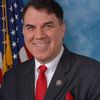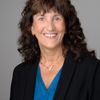Jason Holic
Jason Holic (No Party Affiliation) ran for election to the U.S. House to represent Florida's 10th Congressional District. He lost in the general election on November 8, 2022.
Holic also ran for election to the U.S. Senate to represent Florida. He did not appear on the ballot for the general election on November 8, 2022.
Holic completed Ballotpedia's Candidate Connection survey in 2022. Click here to read the survey answers.
Biography
Jason Holic was born in Illinois. Holic earned a bachelor's degree from the University of Central Florida in 2008 and a graduate degree from the University of South Carolina in 2009.[1]
Elections
2022
See also: Florida's 10th Congressional District election, 2022
General election
General election for U.S. House Florida District 10
Maxwell Alejandro Frost defeated Calvin Wimbish, Jason Holic, and Usha Jain in the general election for U.S. House Florida District 10 on November 8, 2022.
Candidate | % | Votes | ||
| ✔ |  | Maxwell Alejandro Frost (D)  | 59.0 | 117,955 |
 | Calvin Wimbish (R)  | 39.4 | 78,844 | |
 | Jason Holic (No Party Affiliation)  | 1.0 | 2,001 | |
 | Usha Jain (No Party Affiliation)  | 0.6 | 1,110 | |
| Total votes: 199,910 | ||||
 = candidate completed the Ballotpedia Candidate Connection survey. = candidate completed the Ballotpedia Candidate Connection survey. | ||||
| If you are a candidate and would like to tell readers and voters more about why they should vote for you, complete the Ballotpedia Candidate Connection Survey. | ||||
Do you want a spreadsheet of this type of data? Contact our sales team. | ||||
Democratic primary election
Democratic primary for U.S. House Florida District 10
The following candidates ran in the Democratic primary for U.S. House Florida District 10 on August 23, 2022.
Candidate | % | Votes | ||
| ✔ |  | Maxwell Alejandro Frost  | 34.8 | 19,288 |
 | Randolph Bracy III | 24.7 | 13,677 | |
 | Alan Grayson | 15.4 | 8,526 | |
 | Corrine Brown | 9.5 | 5,274 | |
 | Natalie Jackson  | 7.0 | 3,872 | |
 | Teresa Tachon  | 2.3 | 1,301 | |
 | Jeffrey Boone  | 2.1 | 1,181 | |
| Terence Gray | 1.9 | 1,032 | ||
 | Jack Achenbach  | 1.3 | 714 | |
 | Khalid Muneer  | 1.1 | 604 | |
| Total votes: 55,469 | ||||
 = candidate completed the Ballotpedia Candidate Connection survey. = candidate completed the Ballotpedia Candidate Connection survey. | ||||
| If you are a candidate and would like to tell readers and voters more about why they should vote for you, complete the Ballotpedia Candidate Connection Survey. | ||||
Do you want a spreadsheet of this type of data? Contact our sales team. | ||||
Withdrawn or disqualified candidates
- Aramis Ayala (D)
- Eric Atkinson (D)
Republican primary election
Republican primary for U.S. House Florida District 10
The following candidates ran in the Republican primary for U.S. House Florida District 10 on August 23, 2022.
Candidate | % | Votes | ||
| ✔ |  | Calvin Wimbish  | 44.4 | 12,103 |
 | Tuan Le  | 13.2 | 3,601 | |
 | Peter Weed  | 13.0 | 3,541 | |
 | Thuy Lowe | 11.8 | 3,201 | |
 | Willie Montague | 11.7 | 3,176 | |
 | Lateresa Jones | 5.9 | 1,614 | |
| Total votes: 27,236 | ||||
 = candidate completed the Ballotpedia Candidate Connection survey. = candidate completed the Ballotpedia Candidate Connection survey. | ||||
| If you are a candidate and would like to tell readers and voters more about why they should vote for you, complete the Ballotpedia Candidate Connection Survey. | ||||
Do you want a spreadsheet of this type of data? Contact our sales team. | ||||
Withdrawn or disqualified candidates
Campaign themes
2022
Ballotpedia survey responses
See also: Ballotpedia's Candidate Connection
Jason Holic completed Ballotpedia's Candidate Connection survey in 2022. The survey questions appear in bold and are followed by Holic's responses.
| Collapse all
- No Party. When politicians reach across the aisle, they risk fighting in a tug of war, and that's a scenario in which someone inevitably loses - more often than not, it's the people those politicians serve. But when you elect someone without party loyalty, that official doesn't have to reach across the aisle - that person lives in the aisle and is free to roam all seats in pursuit of cooperation to the benefit of as many constituents as possible. Non-partisanship opens the opportunity for the most powerful form of conflict management: collaboration. Instead of competing for resource or compromising on flawed solutions, non-partisan candidates can devote themselves to solving problems for their constituents in a way that benefits all America
- No Politics. Candidate should be free from the influence of money. If corporations or wealthy donors comprise the bulk of the candidate's funding, they will consume the bulk of the candidate's attention. In our society, money and power are inextricably linked. Money begets influence, and influence is power in action. Candidates that reject corporate cash and limit the ability for wealthy donors to hold disproportionate influence are more freely able to devote equal attention to all constituents. Consequently, candidates that meet both of these criteria are uniquely qualified and driven to fix campaign finance laws and ensure fair and trustworthy elections for future generations.
- Just Solving Problems. Candidates that are free of monetary and political influence are free to express a wider range of ideas without repercussion. And when it comes to ideas, the Law of Big Numbers dictates that when more ideas are debated in the open, the more likely it is that a more perfect solution will be chosen. I won't claim to always have the best ideas, but I do have a track record of exploring a wide gamut of ideas, seeking inputs from all sides, and building consensus on a path forward. By opening the U.S. House of Representatives to the full spectrum of possibilities, the chamber can without challenge once again proclaim itself one of the world's greatest deliberative bodies.
It's difficult to argue against the fact that we know of only one habitable planet within our realistic reach: Earth. If we don't take reasonable steps to protect our home, then we risk making it less habitable for humans and other species. It is incumbent upon us in this moment to ensure that the river of grass keeps flowing through the Everglades, that our natural springs aren't bottled up, and that saltwater doesn't creep up beneath our feet.
Having lived in the Midwest, the South, California, and Florida, I bring a unique sensibility, work ethic, and balanced approach to work and play, fiscal and social responsibilities, and respect for both tradition and progress that makes me particularly well suited in bridging the gaps between political parties. In fact, I have been a registered member of the Republican and Democratic parties, but I have spent the majority of my voting life without party affiliation. My loyalty is to the nation and this state above any political organization.
Note: Ballotpedia reserves the right to edit Candidate Connection survey responses. Any edits made by Ballotpedia will be clearly marked with [brackets] for the public. If the candidate disagrees with an edit, he or she may request the full removal of the survey response from Ballotpedia.org. Ballotpedia does not edit or correct typographical errors unless the candidate's campaign requests it.
Campaign website
Holic's campaign website stated the following:
| “ |
Non-Partisanship There's a way to ensure that your elected officials truly work toward the benefit of all Floridians, and the first step is to find a candidate without party loyalty. Because when politicians reach across the aisle, they risk fighting in a tug of war, and that's a scenario in which someone inevitably loses - more often than not, it's the people those politicians serve. But when you elect someone without party loyalty, that official doesn't have to reach across the aisle - that person lives in the aisle and is free to roam all seats in pursuit of cooperation to the benefit of as many constituents as possible. Non-partisanship opens the opportunity for the most powerful form of conflict management: collaboration. Instead of competing for resource or compromising on flawed solutions, non-partisan candidates can devote themselves to solving problems for their constituents in a way that benefits all Americans.
The second step is to make sure that candidate is free from the influence of money. If corporations or wealthy donors comprise the bulk of the candidate's funding, they will consume the bulk of the candidate's attention. In our society, money and power are inextricably linked. Money begets influence, and influence is power in action. Candidates that reject corporate cash and limit the ability for wealthy donors to hold disproportionate influence are more freely able to devote equal attention to all constituents. Consequently, candidates that meet both of these criteria are uniquely qualified and driven to fix campaign finance laws and ensure fair and trustworthy elections for future generations.
The First Amendment is considered by many to be the foundation of the Marketplace of Ideas - the notion that when arguments are publicly expressed, those with the most merit will ultimately prevail. Candidates that are free of monetary and political influence are free to express a wider range of ideas without repercussion. And when it comes to ideas, the Law of Big Numbers dictates that when more ideas are debated in the open, the more likely it is that a more perfect solution will be chosen. I won't claim to always have the best ideas, but I do have a track record of exploring a wide gamut of ideas, seeking inputs from all sides, and building consensus on a path forward. By opening the U.S. House of Representatives to the full spectrum of possibilities, the chamber can without challenge once again proclaim itself one of the world's greatest deliberative bodies.
While the "how" and the "why" of what I am running for the U.S. House of Representatives are interwoven, there are three additional areas I will focus on if elected: Family, Future, and Fixes. 1. Family. Raising a family is hard and noble work, and its benefits shouldn't be limited to those who earn enough to ensure a bright future for their children. We need to reach higher than tax credits and put into place a foundation for families to work together in bringing up the next generation. If it takes a village to raise a child, then that village ought to have the proper resources available for its youngest inhabitants, regardless of its ZIP code - and nobody ought to be denied their right to choose when and whether to raise children, especially until a strong and supportive village exists for everybody. Parents need not feel the potentially dire consequences of unpaid leave when welcoming a new member. Adoption need not be a pursuit available only to those with the means of paying agencies. Loving families with a heart for fostering should not be shut down because of religious influence among third-party organizations. Those unable or without the desire to raise a family of children should not be thought of as lesser-than. Families come in many shapes and sizes, each bringing their own blessings to our communities. 2. Future. Public office is a position of leadership. Honoring that position requires forward-looking clarity of vision to keep our state and country safe and prosperous. The future hinges on at least three key areas:
3. Fixes. We can respect tradition while acknowledging faults with the status quo. But hanging onto a mistake from the past does little to help mend the wounds of history. We've made missteps in our past, and it is wise and honorable to admit it. Indigenous tribes and nations deserve resolutions to our past transgressions, as do descendants of slaves and internment camp captives. Police, teachers, postal workers, and other community helpers are overworked, under-resourced, and unsupported. Let's ensure the most essential of workers get the resources they need and have supplemental services to augment their core functions - in other words, let's not ask teachers to be nurses and police officers to be social workers. The entire network and fabric of the community is worthy of our investment. These may be controversial topics, but we do no good in ignoring them and passing the buck to future generations.[2] |
” |
| —Jason Holic's campaign website (2022)[3] | ||
See also
2022 Elections
External links
Footnotes
- ↑ Information submitted to Ballotpedia through the Candidate Connection survey on May 25, 2022
- ↑ Note: This text is quoted verbatim from the original source. Any inconsistencies are attributable to the original source.
- ↑ Holic for Congress, “Priorities,” accessed August 29, 2022










